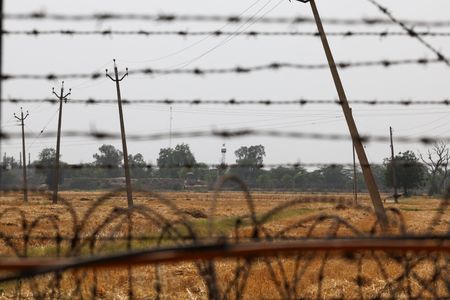(Reuters) – The United States on Tuesday imposed sanctions on a network based in Iran and China that it accused of procuring ballistic missile propellant ingredients on behalf of Iran’s Islamic Revolutionary Guard Corps as President Donald Trump’s administration seeks to increase pressure on Tehran.
The U.S. Treasury Department in a statement said it was targeting six entities and six individuals as part of the action, which comes as the Trump administration has relaunched negotiations with Iran over its nuclear program.
“Iran’s aggressive development of missiles and other weapons capabilities imperils the safety of the United States and our partners,” Treasury Secretary Scott Bessent said.
“It also destabilizes the Middle East, and violates the global agreements intended to prevent the proliferation of these technologies. To achieve peace through strength, Treasury will continue to take all available measures to deprive Iran’s access to resources necessary to advance its missile program.”
Tuesday’s move targeted five China-based companies, one Iran-based firm and six Iran-based people. The Treasury accused the network of facilitating the procurement of sodium perchlorate and dioctyl sebacate from China to Iran.
It said sodium perchlorate is used to produce ammonium perchlorate, which alongside dioctyl sebacate is usable in solid propellant rocket motors, which Treasury said is commonly used for ballistic missiles.
Tuesday’s move is the latest action targeting Tehran since Trump restored his “maximum pressure” campaign on Iran, which includes efforts to drive its oil exports down to zero to help prevent Tehran from developing a nuclear weapon.
In his first 2017-2021 term, Trump withdrew the U.S. from a 2015 deal between Iran and world powers that placed strict limits on Tehran’s uranium enrichment activities in exchange for sanctions relief. Trump also reimposed sweeping U.S. sanctions.
Since then, Iran has far surpassed that deal’s limits on uranium enrichment.
Western powers accuse Iran of having a clandestine agenda to develop nuclear weapons capability by enriching uranium to a high level of fissile purity, above what they say is justifiable for a civilian atomic energy program. Tehran says its nuclear program is wholly for civilian power purposes.
(Reporting by Daphne Psaledakis and Katharine Jackson in Washington; Editing by Matthew Lewis)










